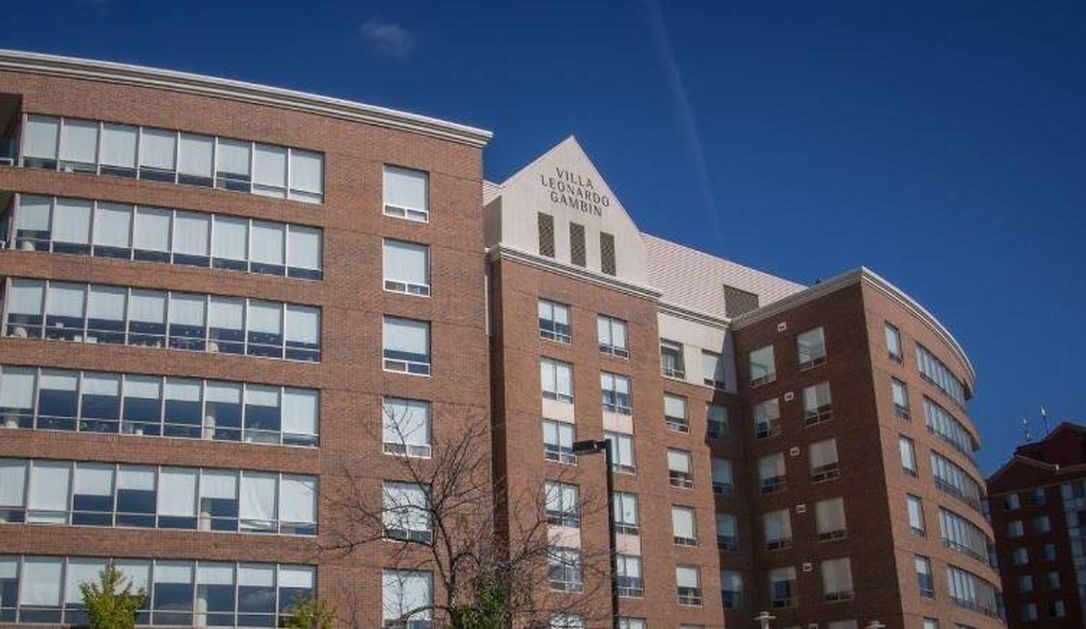
Villa Leonardo Gambin
Villa Leonardo Gambin, an independent not-for-profit, long-term-care home in Woodbridge, received a shipment of Moderna vaccines in the second week of January, with shots earmarked for residents, staff and essential caregivers, meaning family members who helped with a resident's care.
It was a welcome sight at the home, operated by Sienna Senior Living, which has weathered multiple waves of COVID-19 and suffered at least 21 deaths. Late last year the medical officer of health for York Region also
issued an order directing the facility to "adhere to the directions of public health," after inspections found they'd failed to do so.
It finally agreed to a management contract
last month with a local hospital after yet another outbreak.
Now, as tensions over global vaccine scarcity rise, a current employee, who the Star is not naming because she fears repercussions from her employer for speaking to the media, is alleging that the embattled home failed to plan for extra shots or line up people in advance, meaning doses ended up going to friends and family of senior staff instead."I was really mad," she told the Star. "They just abused their authority; because they think they own the building, they can do whatever they want."In an emailed statement, board chair Andrew Iacobelli confirmed that in a few instances when vaccines were at risk of expiring, "we offered them to non-front-line staff who work or volunteer for the residence, including myself."Each vial of Moderna vaccine contains 10 doses and is only usuable for six hours after opening.
In situations where that window was closing fast, Iacobelli said, doses were also offered to family members of staff and board members.
The statement does not indicate that "friends" were give the doses.
"We took all steps possible to ensure team members and residents were offered and encouraged to take the vaccine before deciding to provide it to others," the statement reads.According to a spokesperson, the home is now "awaiting direction" from public health on the administration of second doses.The nurse's concerns are laid out in a report that her union, LiUNA Local 3000, sent to the Ontario Ministry of Health on Friday afternoon, that outlines allegations that she'd been instructed to list people not in vaccine priority groups as essential caregivers on paperwork.She also reported that a doctor had taken several doses "for what appeared to be personal use."In an emailed statement, the spokesperson for the Ministry of Health said it has alerted York Region police about the alleged removal of vaccine doses.
If true, people outside priority groups getting doses "is completely unacceptable," the statement reads.
"The ministry continues to work with its health system partners to ensure the guidance and information provided is clearly understood by all partners regarding the prioritization of populations for COVID-19 vaccines."
Vaccines were distributed at the home over multiple days during the week of Jan. 10. The nurse told the
Star that most eligible residents got doses on the first day they were available, after which the clinic turned its attention to staff and caregivers.
But on one of the later days the nurse said she opened a vial and soon ran out of staff and caregivers to give it to. With the clock ticking down, she said she had seven doses left. She told a manager she was close to having to throw it out, and was told to wait.It was not long that she says Iacobelli walked through the door. As a long-time employee, the nurse says she recognized him. A few more people, some older, some younger, came next. While filing out their paperwork, she said they told her they were friends with managers.Each dose has to be logged with the recipient's name and which priority group they belong to.
"I asked them, 'in which category do they belong? Because they're not essential caregivers.' "
"My supervisor, or the manager, said, 'put them as essential, because that's where they fit.' "She says the instructions upset her, but she didn't feel like she could say no: "I just maintained my professionalism, I don't want to be disrespectful. I just continued."
She said that she was asked if she wanted to bring in her husband and son in for a vaccination as well — an offer she declined."How am I going to justify it they got a shot and there's a recall?" she says, adding that there are people who need the vaccine more.She also points out that due to COVID restrictions the only people who are supposed to be allowed in the building are residents, staff and essential caregivers who have recently had a negative COVID-19 test.In addition to questions about queue jumping, the larger issue here is the lack of planning for extra vaccine doses, according to Charlene Nero, the secretary-treasurer of Liuna Local 3000.
The
University Health Network in Toronto, for example, has a wait list of health-care workers who are next in line for doses if someone misses an appointment, but Nero says there was no such plan put in place at the home.
The facility is close to both women's shelters and homeless shelters and she argues that residents there could have been alerted to extra doses with some advance planning."It's just outrageous, considering that we have been hoping and praying to whatever gods we believe in for the last 10 months that there would be a vaccine," she said."How can there be no plan on how to deal with wastage?"
Comment: It says a lot about the effectiveness of the "vaccine" propaganda that people are quibbling over who gets the shot and calling foul on anyone jumping the queue. It looks like people are quite defensive about getting their dose of side effects.
See also: